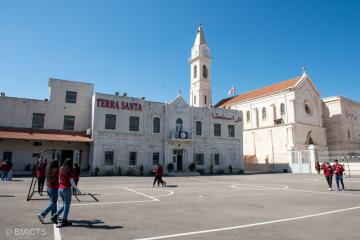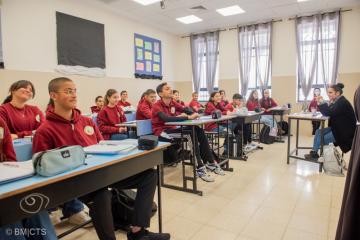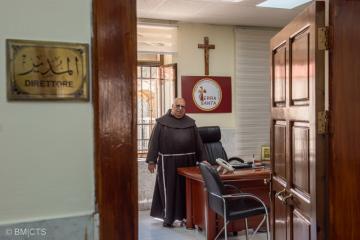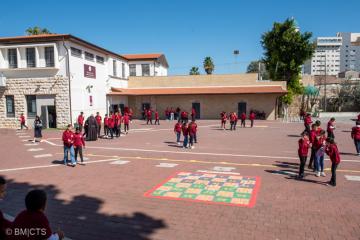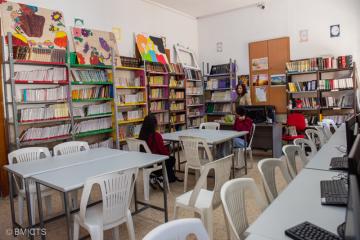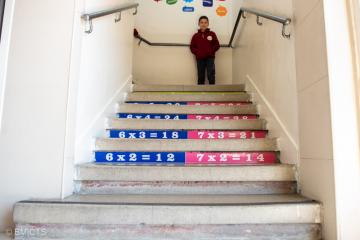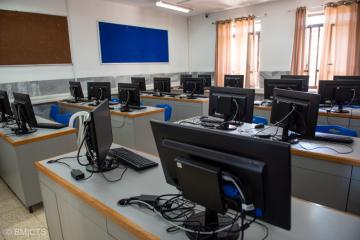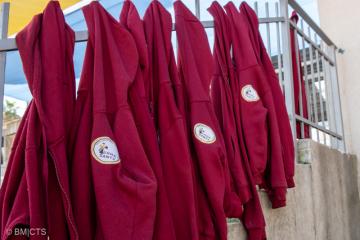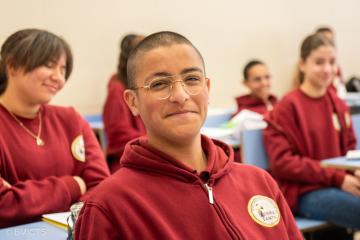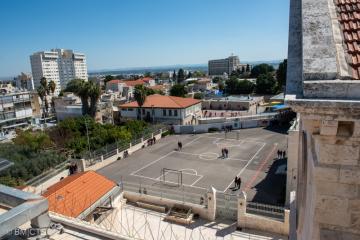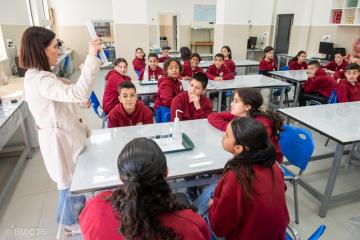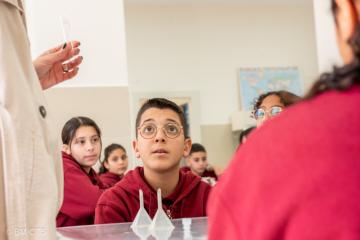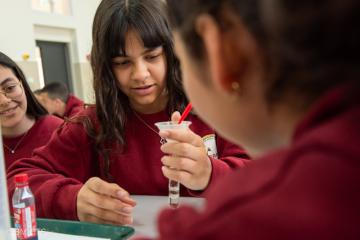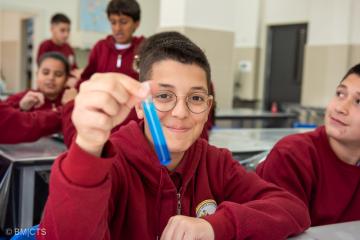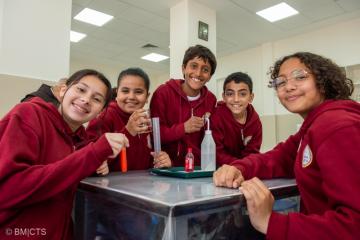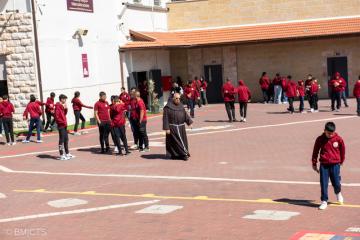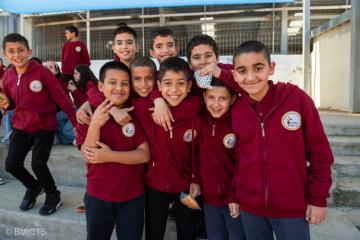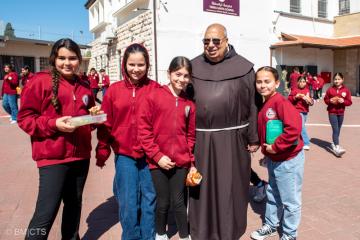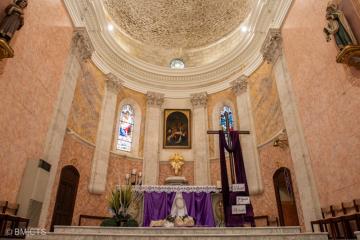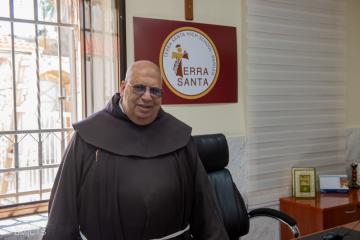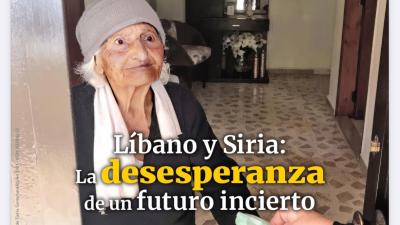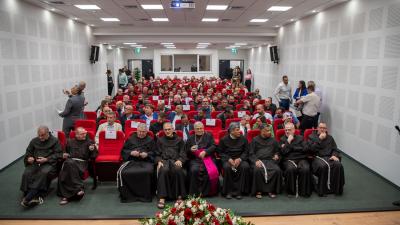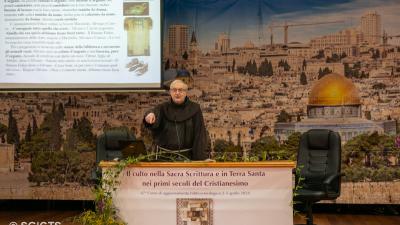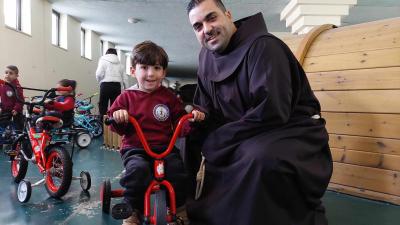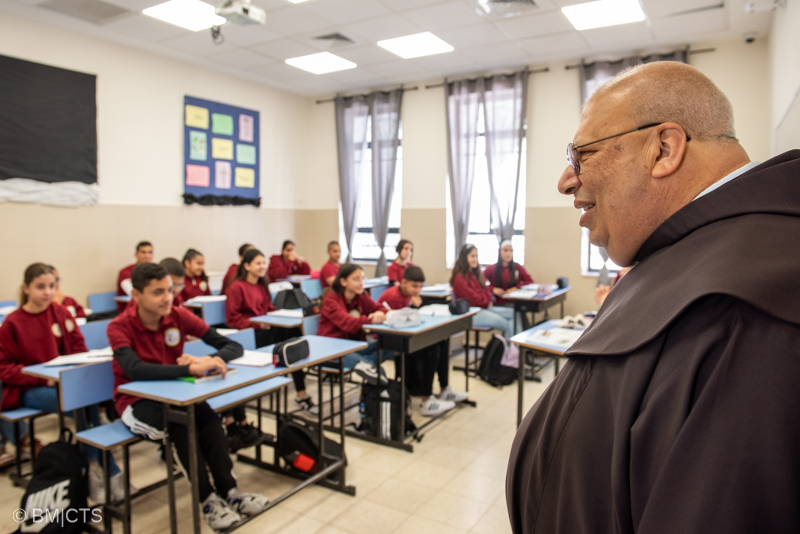
“The Terra Sancta School in Ramleh is present in all the homes. There is no Arab family in the city that has not had one of its members at this school.” Fra Abdel Masih Fahim, of the Custody of the Holy Land, is proud of the mark that the Franciscan school can leave on society through forming the new generations.
Mixed city
Ramleh (or Ramla) is in a strategic position, on the road between the port of Jaffa and Jerusalem, the first stopping-place on the way. A city of passage, with a multi-ethnic and multi-religious character, Ramleh today has a population of about 75,000 inhabitants, 80% of whom are Jewish and 20% are Arab Israelis (16,000 Muslims and 4,000 Christians). It is one of the so-called “mixed cities” in Israel.
The friars have been present in Ramleh since 1296. In the Franciscan compound, in the Old City of Ramleh, there is the convent, the school and the church, dedicated to Sts Nicodemus and Joseph of Arimathea (Ramleh is believed to be the biblical Arimathea, the city where the man who offered the new tomb for Jesus was born). Nicodemus, the hidden disciple of Jesus, is also associated with the burial of Jesus.
Education, a service to society
The Terra Santa School was founded in Ramleh in 1728 (and in Jaffa in 1730). Today it has 460 pupils, from the fourth to the twelfth grade (from ages 9 to 18), of whom 58% are Christians. From the next school year, all the sections will be open, starting from pre-school. “As Franciscans,” said fra Abdel Masih, “we take an interest not only in pilgrims, but also the local church, through the parish, and society, with the school. Education is very important: it is a service that the Custody offers to help the whole of society, and to be an integral part of it.”
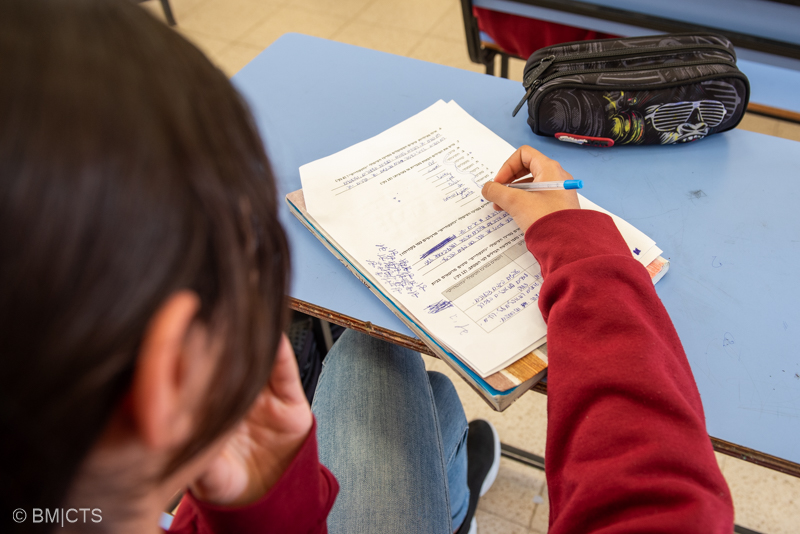
The youngsters all come from Arab families, while there are also some Jews among the teaching staff. “Lessons are normally in Arabic, but in the secondary school we teach the scientific subjects in Hebrew. Arab teenagers increasingly prefer to use Hebrew as the language of learning and communication between them at school but also at home. They often use Arabic words written in Hebrew characters.”
The school calendar is also modelled on the multi-religious nature of society. There are holidays not only at Christmas and Easter, but also on some Jewish holidays – such as Yom Kippur, and the “non-working” days - and the main Muslim holidays, in particular Id al fitr, which marks the end of the holy month of Ramadan, and Id al-adha, the feast of the sacrifice. This does not mean watering down one’s identity: “The identity of the school is Christian, Catholic and Franciscan” fra Abdel Masih clearly says. “Exactly for this reason, we are capable of welcoming everyone.”
Fra Abdel Masih has been doing his ministry in the Holy Land for 45 years, in particular in the field of education. He has been head of the schools of Ramleh and Jaffa for about 17 years. Every day, before the start of lessons, he meets all the pupils and leaves them a message, with which to spend the day. When we met him, on the first day of Ramadan, he spoke to the pupils about the fast, which “does not concern only eating and drinking, but the progress of relations between us and with society.” As it is also Lent, fra Abdel Masih opens the church at 7.30 a.m. every day and suggests that those who wish join him for the prayer of Lauds. He celebrates a Mass for each class (not compulsory) and is available for confessions.
For a real autonomy
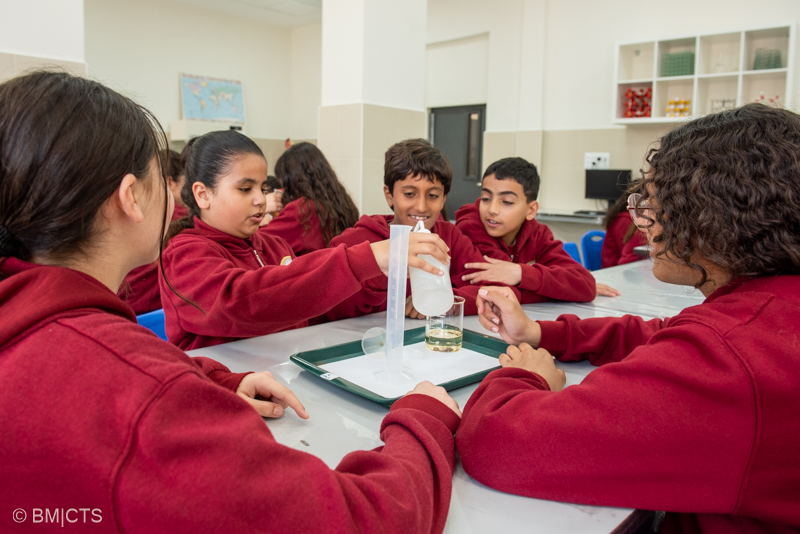
Christian schools in Israel are “recognized not official.” This means that they can award valid qualifications, but they are not state schools and therefore do not enjoy a number of economic benefits. To make up for this, they enjoy autonomy in the management of their real property and in the choice of the teachers, two principles which are “non-negotiable,” according to fra Abdel Masih, who says: “We want to remain free!” Even at the cost of sacrifices.
For 16 years, until one month ago, fra Abdel Masih was General Secretary of the Christian schools in Israel. He has very great knowledge of the state school system and he knows that keeping the autonomy and the Christian identity of the schools entails a cost (or rather a loss of income): “Under the law, the State covers all the expenses of Israeli pupils, but as we are autonomous, the contribution oscillates between 60 and 75 per cent. This percentage is further reduced if we consider that this contribution is calculated only on the expenses linked to teaching and not to all the actual costs of a school, which include modernizing the facilities, purchasing material and other functional expenses. Another subject which has been the object of dialogue with the government for over ten years,” fra Abdel Masih stresses, “is that of the equal treatment for primary school teachers, especially concerning holidays, sick leave and retirement age.”
At school in wartime
With the outbreak of the war, school life has also been turned upside-down. After a first period of adaptation, with lessons over Zoom or in alternating groups, pupils and teachers have resumed their lessons regularly. “There have not been any particular tensions at school. A certain period of time was dedicated in the classes to speaking about the situation, but also to practical activities of support for the needy, and prayers for peace. We cannot be extraneous to society and to the history we are living through now,” says fra Abdel Masih. “The youngsters live immersed in Israeli society, but facts such as this remind them they belong to Arab society. They cannot fail to think about those who are dying in Gaza, some of them have relatives there – some of them have died, others are in great difficulty. At the same time, they cannot not think about those who are dying in Israel, which is their country, where they have relations, friends, where they know families who are in mourning because of the war. Humanity has to be respected.”

The war has also had repercussions on the school’s economy. Usually the school in Ramleh covers much of the costs - excluding the state share – with the school fees, the donations and the income from organizing events and activities. With the war, many families, even in this part of the country, are in economic difficulty and have asked for a discount on the fees or to delay and pay in instalments. The absence of pilgrims, which has a strong impact on the income of the Custody, has also reflected on the Ramleh school. Nevertheless, fra Abdel Masih concludes, “We will never give up our schools and our freedom, because education is our objective and our foundation.”
Marinella Bandini


